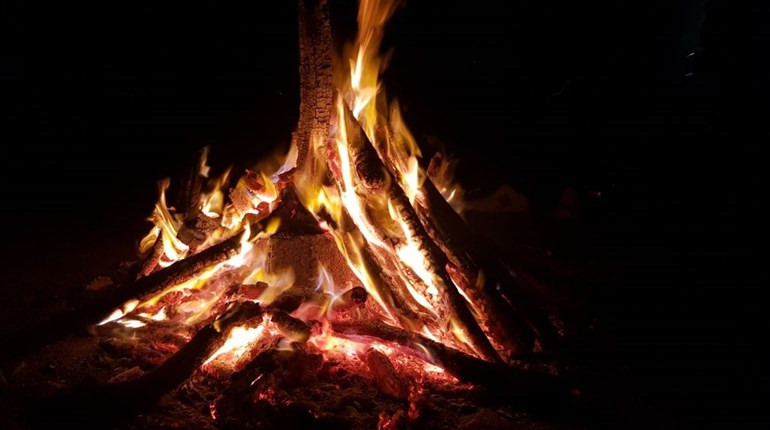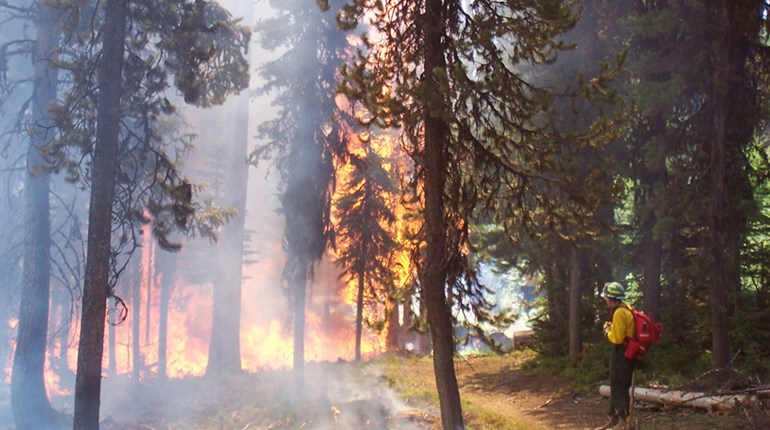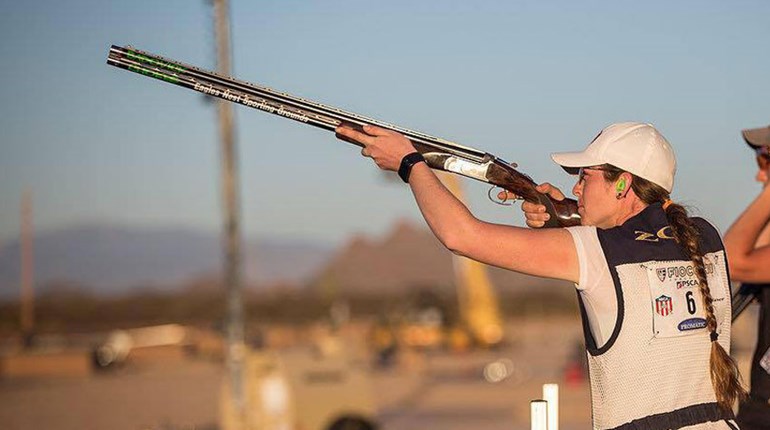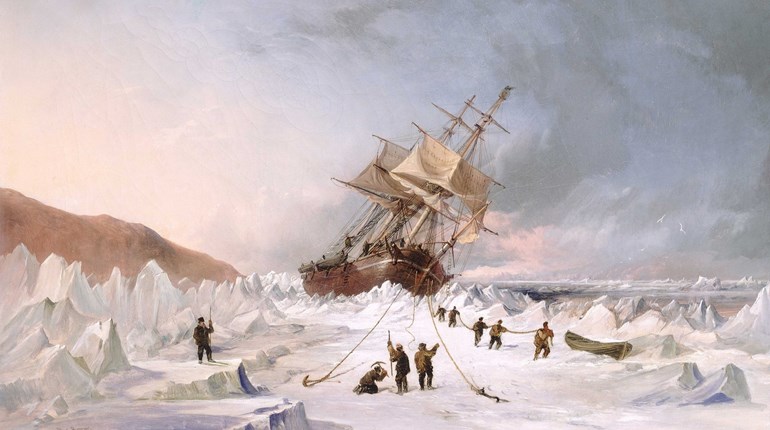
Most people are thrilled if they work at a job that is their passion. Don Davis has two passions—search and rescue and wilderness survival education—and a “cool job” for each. He is, indeed a lucky man!
Then again, Davis has worked hard to make his “luck,” starting with re-locating to the Rocky Mountains of Colorado, where such skills were more in demand than in his home state of Ohio. He found a corporate job to support himself and set about acquiring the needed skills.
Passion One: Search and Rescue
Davis was in Colorado just a short time when he heard about a local search and rescue team. “I joined immediately,” he says. After completing basic training, he was ready for action.
Davis well remembers his first mission in 1982. “It was three days of radio relay on Thunder Pass, living in a snow cave with another team member,” says Davis.
The month was January and Thunder Pass is 11,331 feet above sea level, so we’re talking cold, here. “Temperatures were probably five to 15 below [zero],” Davis guesses. Brrr!
Apparently, the cold didn’t diminish his enthusiasm. More than 30 years later, he’s still with Larimer County Search and Rescue (SAR). “I have a passion for SAR,” explains Davis. “I eat, live and breathe it. I’ll never quit the team.”
After all these years, Davis has stories, too—lots and lots of stories
Mission Stories
“It was at St. Mary’s Glacier,” recalls Davis. “Four guys in their mid-20s had been up all night drinking. The next day they went hiking, but one of them wasn’t feeling good. The others told him to wait—that they’d go on with the hike and come back for him.”
Things didn’t work out as planned. When the three hikers returned, their buddy was nowhere in sight. A search and rescue helicopter and a ground team worked together to find the missing hiker. Unfortunately, the ending was not a happy one. “The guy fell off a vertical cliff and bounced down a slope,” says Davis.
That’s when the deputy sheriff took over. His job was to find out why four men went up and only three came down. Was there foul play involved? Was it a suicide?
In this case, there was no crime. An accident resulted in a death when the hikers failed to follow a basic outdoor safety procedure—stick together. “People get in trouble when they split the group,” explains Davis.
As to the crime angle, “the foul play thing is rare,” says Davis. Still, law enforcement is in charge of all SAR missions. “Every mission is a crime scene until proven otherwise.”
So investigations are thorough, and background checks are run right away to make sure none of those who need rescuing are likely to be armed and dangerous.
“Another mission involved a 15-year-old who got separated from his group,” Davis says as he launches quickly into his next story.
The teen was found the following day, “brought back into base,” and questioned about his experience. How did you get lost? Did you build a fire? Then came the more important safety questions. Did you put it out? Did you eat anything?
The boy had, indeed, eaten some dry moss on a pine tree. It had made him nauseous. So he threw up and ate some more, with similar consequences. Fortunately, there were no lasting ill effects, but—as with the hiker who fell to his death in the previous story—not knowing basic outdoor safety procedures could have been fatal.
“If you didn’t take it with you,” advises Davis, “don’t eat it. Period.”
Occasionally, there are some questionable emergencies. Davis recalls an incident where some young Army personnel headed into the mountains and got lost. It turned out they’d planned to get lost. “In reality,” says Davis, “they went AWOL.”
Highs and Lows
Search and rescue work offers up so many highs: the satisfaction that comes from helping a fellow human; the challenge of a physical, outdoor activity; and the bonding that comes with a team experience, to name just a few things.
When asked his favorite part of the job, Davis had no trouble recalling the feeling of finding a lost child of four, carrying him out of the wilderness and handing him to his grateful parents. “That’s the most rewarding mission I’ve ever been on,” says Davis.
On the other hand, there is a definite downside to the work, as well: the letdown when the mission ends in tragedy, the physical and emotional exhaustion that is part and parcel of the job; and the need to function in extreme weather conditions.
But none of that is what most gets to Davis. “The worst missions are where there’s a body recovery,” he says. “I’ve bagged a number of bodies, and I never want to do it again. Even worse,” he continues, “is telling the family.”
One other downside is that most search and rescue jobs are volunteer positions, which means you have to have another job to pay the rent. There are exceptions. “If you want to do SAR and get paid for it,” explains Davis, “you can become an Air Force parajumper. You can join the Coast Guard and rescue people from boats that are sinking. Or, in our venue, you can work for the sheriff’s emergency department.”
Passion Two: Wilderness Survival Education
Fortunately for Davis, he is a man of many interests, and his second passion—wilderness survival education—is a paying job. In fact, he began taking classes in wilderness survival before starting his SAR training. His instructor was “Papa Bear” Whitmore of the Wilderness Institute of Survival Education (WISE).
Davis was an eager student, soaking up Whitmore’s wilderness survival philosophies and techniques. His ultimate goal was to teach with Whitmore at WISE, and he made no secret of it. But Whitmore wasn’t hiring at the time.
Davis persisted. He enrolled in more of Whitmore’s survival classes. When he felt ready, he starting teaching on his own in another location. On occasion, he even invited Whitmore to come in as a guest instructor.
That persistence—“paying my dues” is how Davis puts it—eventually paid off, and Davis went to work at WISE. “That was always my intent,” he says.
When Whitmore passed away in 2003, Davis remained. Today, WISE has been renamed the Wilderness Survival Institute, www.wisesurvival.com. Davis runs the show, but Whitmore’s wilderness and cold-weather survival techniques are still at the core of this educational and consulting service.
“Teaching wilderness survival goes hand-in-hand with the SAR aspect,” says Davis of his passion for two different lines of work. “Teaching people how to take care of themselves until help arrives makes my [SAR] job easier.”
Pluses and Minuses
Davis’ passion for teaching and for his subject matter comes through in even the briefest of conversations. Just ask him a question—any question—and he’ll answer with an energetic and thorough explanation, followed by, “Does that make sense?” or “Do you see what I mean?”
He regards listener feedback as important and freely admits it’s one of his favorite parts of his job as a wilderness survival instructor. “Getting feedback from the audience, getting positive student feedback—I love that,” he says with enthusiasm.
When pressed for a least favorite part, he draws a blank. “What’s not to like?” he wonders. But then he recalls a conference at a hotel, where the house audio-visual equipment wasn’t working. “I couldn’t show my lead video,” he says with just a trace of remembered annoyance.
Perfect Fit
For Davis, meshing search and rescue operations and wilderness survival is a perfect marriage of his two great passions in life. At one time he relied on a job in the corporate world to bring in sufficient income. These days he just does search and rescue and wilderness survival training … and knifemaking. But that’s a passion for a different article.
Is It for You?
So there you have it: two different career possibilities. Search and rescue is mostly volunteer work, but it doesn’t have to be. If you’re a team player who loves physical activity and enjoys trying to help others, SAR work could be the “cool job” in your future.
On the other hand, if you’re a physically active person who enjoys the outdoors but prefers the idea of making a difference by teaching others, wilderness survival education may be a super path for you to follow.
What do you think?
Four Things You Can Do Now
Davis offers up four suggestions of things you can do now if you think search and rescue work or wilderness survival education might be in your future:
Join a scouting organization.
Focus on outdoor activities.
Hike.
Get physically fit.
B)
Eight Wilderness Survival Tips
Let someone know where you’re going and when you’ll be back.
Don’t eat anything you didn’t bring.
Purify drinking water. (It only takes a tin can and a fire. So no excuses.)
Take along with you: fire-starting equipment (know how to use it), a tarp, enough food for your time out plus a little more, cell phone with a charger (solar), GPS (may be on phone) and/or compass.
Pay attention to the weather.
If someone in your group is tired, take a break before moving on.
Always stick together.
“Pay attention 360 degrees,” says Davis. That’s all around you. Things will look different on the return trip and it’s not hard to get lost if there’s no posted signs.





































